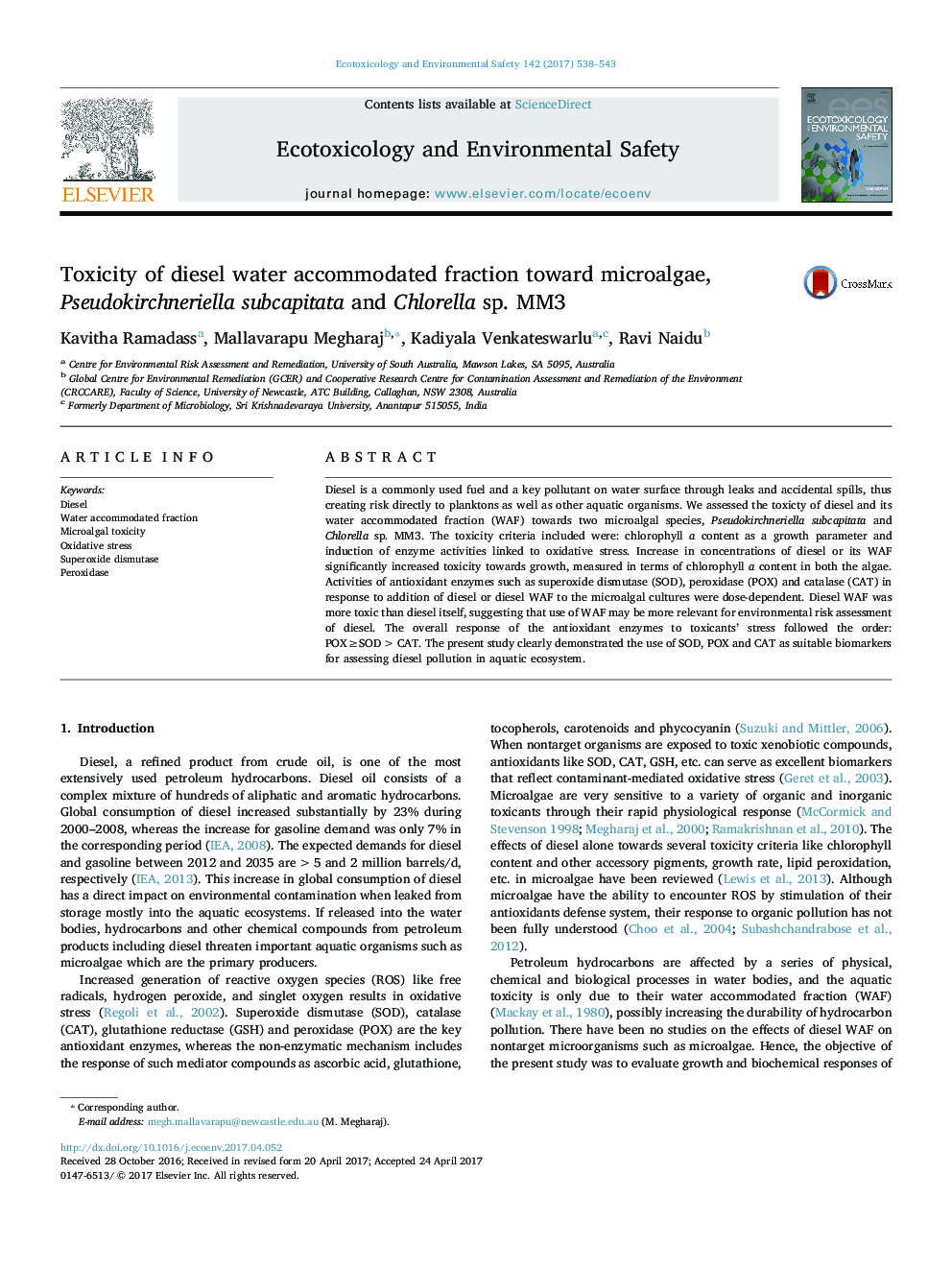| Article ID | Journal | Published Year | Pages | File Type |
|---|---|---|---|---|
| 5747626 | Ecotoxicology and Environmental Safety | 2017 | 6 Pages |
Abstract
Diesel is a commonly used fuel and a key pollutant on water surface through leaks and accidental spills, thus creating risk directly to planktons as well as other aquatic organisms. We assessed the toxicty of diesel and its water accommodated fraction (WAF) towards two microalgal species, Pseudokirchneriella subcapitata and Chlorella sp. MM3. The toxicity criteria included were: chlorophyll a content as a growth parameter and induction of enzyme activities linked to oxidative stress. Increase in concentrations of diesel or its WAF significantly increased toxicity towards growth, measured in terms of chlorophyll a content in both the algae. Activities of antioxidant enzymes such as superoxide dismutase (SOD), peroxidase (POX) and catalase (CAT) in response to addition of diesel or diesel WAF to the microalgal cultures were dose-dependent. Diesel WAF was more toxic than diesel itself, suggesting that use of WAF may be more relevant for environmental risk assessment of diesel. The overall response of the antioxidant enzymes to toxicants' stress followed the order: POXâ¥SOD>CAT. The present study clearly demonstrated the use of SOD, POX and CAT as suitable biomarkers for assessing diesel pollution in aquatic ecosystem.
Related Topics
Life Sciences
Environmental Science
Environmental Chemistry
Authors
Kavitha Ramadass, Mallavarapu Megharaj, Kadiyala Venkateswarlu, Ravi Naidu,
